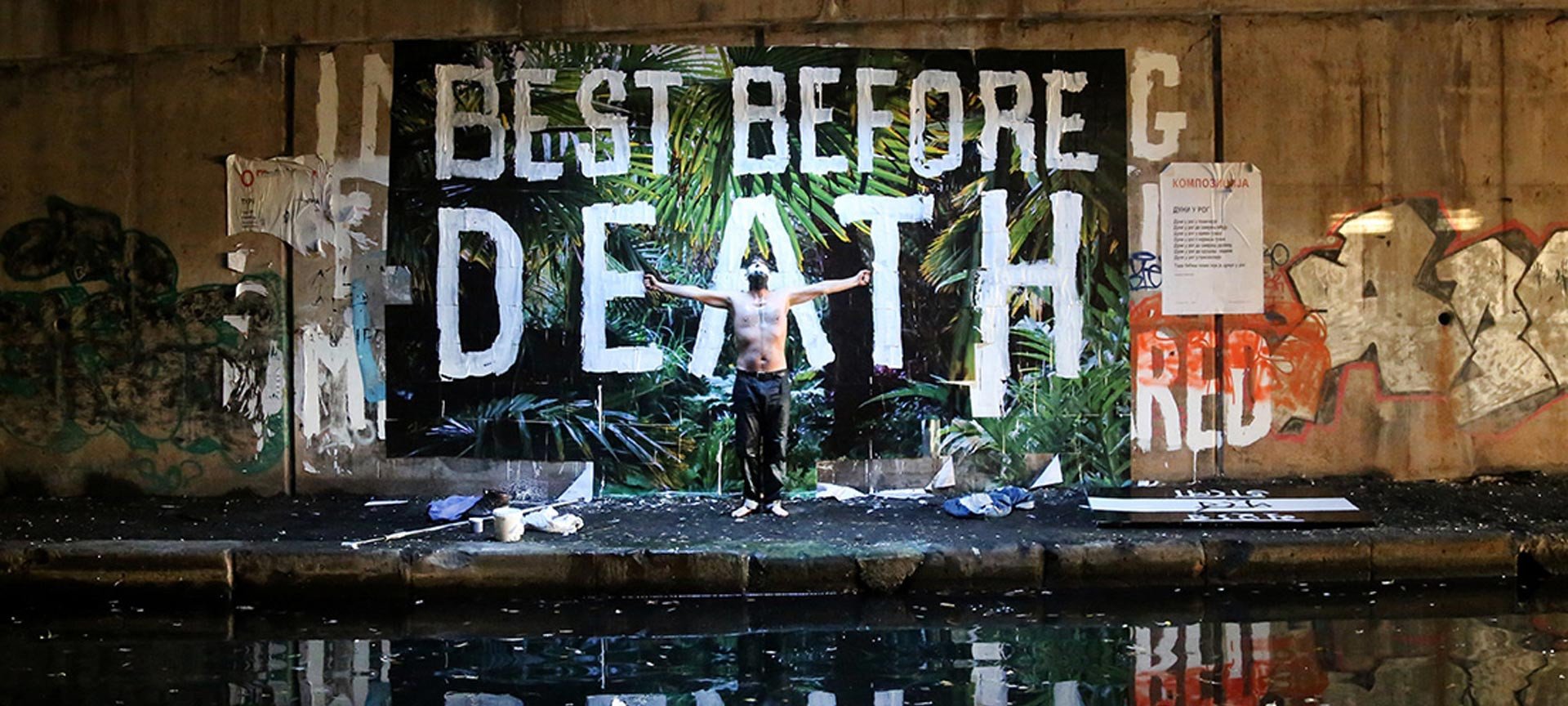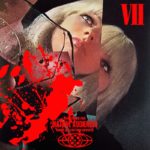This screening of Best Before Death – a documentary about the Scots’ artist Bill Drummond – is bookended by excerpts from a play, White Saviour Complex, written by Drummond and performed by him and his fellow countryman, actor Tam Dean Burn.
Since early 2014 Bill Drummond has been on a world tour, travelling the globe with his show The 25 Paintings visiting a different city every year, each one of which has a particular meaning to him. Best Before Death follows him over a two year period on this tour – between 2016-18 – during which time he visits first Kolkata, India and then Lexington in North Carolina (where Drummond had once lived as a young boy, having travelled to the United States with his family as part of his father’s work as a Presbyterian minister) where he engages with the local communities through the creation of his various art projects.
These projects include Bill Drummond baking cakes, making soup, building beds, and shining shoes before presenting his completed products to members of the community in which he has been living and working. So impressive is the man’s creative versatility, Drummond finds himself described by one of his temporary neighbours in Lexington as “a regular Martha Stewart”, a comparison which somehow seems to be lost on him.
Best Before Death provides some fascinating, not to mention amusing insights into Bill Drummond both as an artist and an individual. He tells a fellow artist in India that he always likes to enter a city by banging a drum. When advised of some of the practical difficulties that this may present, though, Drummond responds by saying rather tellingly “I don’t like getting permission.” He also struggles to explain the purpose of what he is doing; saying that to do so would somehow render “it just becoming a thing.”
Bill Drummond is probably at his most self-conscious (and self-effacing) during the film when the people with whom he meets finally register that he was once “a big rock star”, a specific, albeit inaccurate reference that Drummond laughingly dismisses. But he does not completely reject his musical past – most notably as co-founder of the late 80s/early 90s avant-electronic duo The KLF – as in each city that he visits he seeks out local musicians to provide him with their interpretation of The KLF tune ‘True To The Trail’ (the opening track from their 1992 album The Man).
Whilst the fundamental premise of Best Before Death may be that of a portrait of an artist and his art (or perhaps more specifically the actual process of creating that art), both the film and its accompanying play are ultimately far more than just that. They pose searching questions about identity; during the play Bill Drummond strips off to his singlet and tartan boxers, with Tam Dean Burn then assuming not only the artist’s clothes but also his persona. They reflect upon the issue of mortality; the world tour is scheduled to end when Drummond turns 72, an age at which his grandfather died and one that he does not expect to pass. And they raise a most uncomfortable concern about any potential racism that could be present in the film.
In both cities that are featured in Best Before Death, Bill Drummond is a white man working in what are largely impoverished black communities and this serves to highlight the systematic and institutionalised power structures that have existed for hundreds of years. But by subsequently locating this film within the wider context of his White Saviour Complex play Drummond has clearly recognised this undoubted concern and tried to both deconstruct and address any such considerations of possible oppression and discrimination in the process.
Best Before Death and live performance by Bill Drummond and Tam Dean Burn took place at York City Screen Picturehouse on 4th October 2019.




